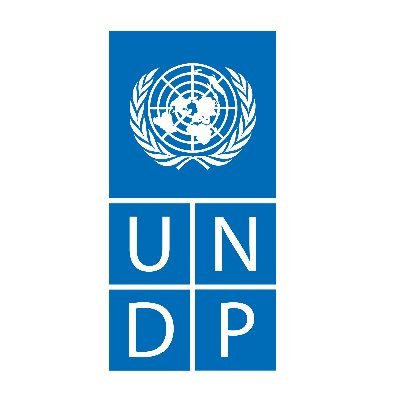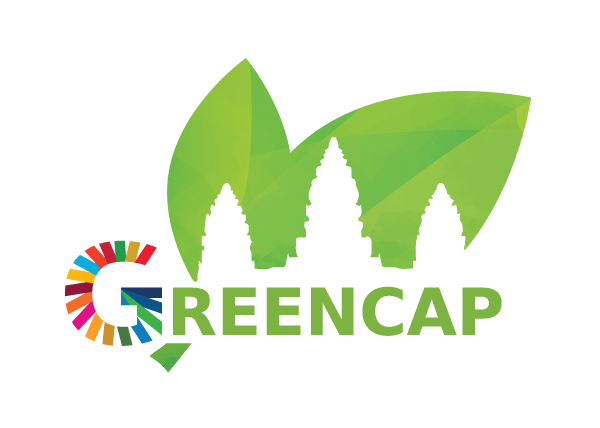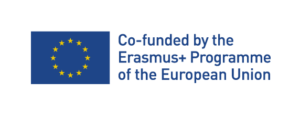
About the position
| Location : | Phnom Penh, CAMBODIA |
| Application Deadline : | 28-Mar-21 (Midnight New York, USA) |
| Type of Contract : | Individual Contract |
| Post Level : | International Consultant |
| Languages Required : | English |
| Starting Date : (date when the selected candidate is expected to start) | 15-Apr-2021 |
| Duration of Initial Contract : | 95 working day from 15 April 2021 to 31 March 2022 |
| Expected Duration of Assignment : | 95 working day from 15 April 2021 to 31 March 2022 |
Background
The United Nations Development Programme (UNDP) is the UN’s global development network, an organization advocating for change and connecting countries to knowledge, experience and resources to help people build a better life. UNDP Cambodia Country Office works in partnership with the Royal Government of Cambodia (RGC), non-government organizations, civil society organizations, community-based organizations, multilateral aid agencies, bilateral donors and private sector to support the progress towards the Sustainable Development Goals (SDGs). To support the implementation of the UNDP country programme 2019-2023, the Policy and Innovation Hub (PIH) plays an important role within the country office to develop high level policy and technical advisory support to the government. PIH work is guided by three set of strategies (1) research, policy and innovation, (2) communication, and (3) programming. Through the policy, research and innovation, communications, and programming, the PIH is expected to deliver the two main outputs (1) Prosperity, and (2) Planet. Climate change, natural resources, circular economy and energy are the focused areas of the Output 2, i.e. Planet.
The choices made to respond to COVID-19 and to environmental and social protections will impact Cambodia’s economy beyond recovery. In recent months, the RGC has decided to enhance coal-based generation to meet growing electricity demand. In a letter to the government, the group, RE100 raised concerns around the focus on coal-generated electricity compared to global trends towards increased shares of renewables. Coupling with Covid-19 crisis which has significantly impacted garment industry across the region, this is making the country’s garment industry, a major employer of Cambodia’s labor force, less attractive compared to countries with commitments to renewable energy. Concurrently, a new UNDP report estimates that replacing coal and gas with investments in solar in Cambodia can result in a net average annual gain of up to 39,321 high-skilled jobs in 20 years. Renewable energy options also offer important means to reach the remaining 370 remote villages in Cambodia that are yet to be electrified.
Therefore, proposed activities under this TOR will support MEF to catalyze long-term investment in energy sector towards greening infrastructure, reduce the cost of electricity, improve efficiency of service delivery by improving efficiency of Rural Electricity Enterprises (REEs) in Cambodia to manage, overcome, and build a resilient pathway forward from the challenges presented by COVID-19 and beyond. All these are important in shaping post-COVID economic revival. Improved energy policies will increase energy access to the most vulnerable, including poor households and women-headed households, to accelerate the implementation of gender sensitive green economy related policies and programmes.
Duties and Responsibilities
In close collaboration and cooperation with Energy Team based at MEF and GDE at MME, the individual Consultant will undertake the following tasks. Outputs from these tasks should be practical at field level than to remain as theoretical analysis. All deliverables under each task should be submitted in the form of a report, PowerPoint presentation, and include hands-on training wherever applicable. These tasks will build on the work that UNDP conducted during 2020 with the Energy Team at MEF, GDE at MME, and other stakeholders. During the course of implementation of these activities, MEF Energy Team will closely coordinate with other development partners who are providing technical assistance and may amend the following activities to avoid duplication and build synergies.
The scope of work as detailed below will be subject to adjustments, first during the inception workshop/phase, and second throughout the assignment as mutually agreed upon by UNDP, MEF Energy Team, GDE at MME and The Consultant. There are five broad components to this assignment, each comprising of multiple sub-tasks:
- Component 1: Action plan and roadmap for power market enhancement development in Cambodia
- Component 2: Opportunities for promoting the use of Demand-Side Management (DSM) and Energy Efficiency (EE)
- Component 3: Climate Economics and Policy Design to improve economic competitiveness
- Component 4: Improving the financing landscape for the implementation of Cambodia’s Nationally Determined Contribution (NDC)
- Component 5: Provide capacity building to expand and institutionalize its governance in Cambodia’s energy sector
Component 1: Action plan and roadmap for power market enhancement development in Cambodia
Building on the study report on Electricity Market Structure by MEF and UNDP from 2020, this assignment would like to refine roadmap and develop specific action plan to enhance the power market development of Cambodia towards improving the efficiency of the energy sector. This would include:
- Establish historical context and current overview of Cambodia’s electricity distribution and retail market, including the roles and responsibilities of all relevant actors.
- Conduct a review of existing literature, including annual and case-study reports from relevant institutions and development partners with similar experience of regional developing nations in establishing rural distribution and retail services
- Provide analysis of key structural reforms and instruments to induce efficiency gains and cost of service delivery reductions to open up the opportunity for electricity tariff reduction. These would include (but not limited to):
- EAC Cost Recovery Calculation
- REE licensing and operations
- Technical and service delivery standards
- Role of REF program #4 Cross-Subsidy
- REE tariff setting policy strategy
- Set out typical roadmap and action plan for the introduction of competitive mechanisms for power market reform, including case-study examples for merging and consolidation of both public and private small power distributors, and for the separation of distribution and retail sectors.
- Refine the existing roadmap strategy for the implementation of strategy options considered to be most feasible over short-term, medium-term, and long-term considerations, and develop specific action plans to implement roadmap strategy.
Component 2: Opportunities for promoting the use of Demand-Side Management (DSM) and Energy Efficiency (EE)
Electricity shortage and excessive supply co-exist both in a single day (peak hour) and in a year (seasonal peak). While extending capacity can keep up with increasing demand driven by population and economic growth (residential and transport sectors), the expenditure including the minimum-take payment for excess electricity can also increase. This suggest that capacity extension is not an efficient solution to deal with power shortage. Instead, DSM should be promoted to improve efficiency of resource usage.
- Conduct a comprehensive review of existing literature, including relevant regional experiences, case-studies on different types of DSM measures and its practical implementation methods include:
- Energy Efficiency
- Demand Response programs
- Distributed Energy Resources
- Energy-Management Systems
- Critical Peak tariff and Time of Use tariff pricing
- Network charge optimization
- Dynamic Demand capability
- Identify specific and realistic DSM measures that can be implemented in Cambodian context including economic principles
- Formulate a roadmap strategy with action plan for the implementation of DSM (including EE) measures that are most feasible over short-term, medium-term, and long-term.
Component 3: Climate Economics and Policy Design to improve economic competitiveness
Cost is no longer the single most important factor for industry. Instead, as a global trend, environmental responsibility including using RE in production, and taking part in climate change abatement is becoming a popular branding strategy for industry. In this regard, formulating a Roadmap and Action-plan for the development of RE integration and Climate Policies in Cambodia’s energy sector is crucial to promote the competitiveness of the economy.
- Conduct a climate risk study for energy sector in Cambodia and provide a review on the experience of climate policies as applicable to the energy sector in regional and international jurisdictions.
- Set out key principles and concepts of climate economics and policies, including (but not limited to):
- Marginal Damage Cost and Marginal Abatement Cost, and Aggregate Marginal Cost Curves
- Cost-Benefit Analysis
- Cost-Effectiveness, Equimarginal, and Cost-Minimization Conditions
- Contingent Valuation Analysis (CVA), Benefits Transfer Method, Social Cost of Carbon (SCC)
- Integrated Assessment Modelling (IAM)
- Decarbonization methodologies
- Types of emissions schemes, such as: Command and Control (C&C), Ambient/Technological Standards, emissions performance standards, Incentive-Based (IB), Emissions (Carbon) Tax, Cap & Trade
- Conduct modelling (by building an extension to MEF’s in-house spreadsheet-based modelling tool) of Cambodia’s power sector of the Marginal Abatement Cost (MAC) for various emissions-reduction scheme options, such as an Emissions Target, Cap & Trade, Emissions (Carbon) Tax, Renewable Energy Certificates, and Technological Standards.
- Produce report analyzing results, including options for consideration of designing climate policies for Cambodia’s energy sector. This includes an analysis on the establishment of national greenhouse gas and energy reporting systems for GHG inventory and energy balances.
- Formulate a Roadmap and Action-plan for the development of Climate Policies in Cambodia’s energy sector.
Component 4: Provide capacity building to expand and institutionalize its governance in Cambodia’s energy sector
Production of training material on fundamental concepts of energy economics for both MEF and MME personnel. Further, this support builds on the groundwork that was conducted in 2020 in the formal establishment of Energy Unit (EU) within the Ministry of Economy and Finance to expand and institutionalize its governance in Cambodia’s energy sector.
- Produce custom training material (spreadsheets, handbook/guidelines, and PowerPoint presentations) on fundamental energy-economics for Cambodia’s electricity sector.
- The main purpose of this material is to provide incoming members of the MEF- Energy Team and MME personnel with some baseline training on key concepts tailored specifically to the Cambodian context.
- Initial list of topics include, but not limited to (& final list will be decided during inception workshop):
- Energy Demand Forecasting
- Energy Efficiency
- Technical Generator Characteristics (technology-specific)
- Cost structure generator characteristics (technology-specific)
- VRE Integration (technology-specific)
- Economic Cost-Benefit-Analysis (CBA) of RE
- Climate Economics
- Electricity Tariffs
- Power Systems Modelling
- Spreadsheet and guideline material will be presented and utilized over frequent training sessions with the MEF Energy Team and MME. It should also be updated/adapted as needed throughout the duration of this assignment.
Component 5: Improving the financing landscape for the implementation of Cambodia’s Nationally Determined Contribution (NDC)
Cambodia submitted its updated NDC in December 2020. It has identified prioritized mitigation actions. It is a priority now for implementing these NDC actions by identifying external financing, so that Cambodia could achieve and further enhance its national mitigation targets under the Paris Agreement. This support is mostly directed to MME.
- Conduct an assessment of the current financing landscape in Cambodia for climate change mitigation, with consideration of both project- and programme level opportunities. This includes an analysis on sustainable business models on efficient and clean energy across all sectors.
- Evaluate risks, challenges and barriers currently facing the implementation of climate change mitigation actions and related financing in Cambodia
- Identify opportunities for improvement, borrowing from best practice applicable to the Cambodian context detailing potential programmes and projects for UNDP in Cambodia. Consider in this analysis, a range of potential financing instruments, limitations for UNDP and how to involve other stakeholders in partnership to circumvent the limitations, specifically focusing of but not limited to,
- Direct/Corporate PPAs
- Green Bonds for financing large-scale RE projects
- Attracting institutional investors for financing RE
- Securitization instruments for RE project financing
- Tapping into Climate Funds for financing RE projects
- Develop two concept notes in close collaboration with MME based on their needs following the standardized GCF concept note templates with required supporting annexes. As applicable, activities conducted during 2019, and 2020 including technical assessment reports, shall be part of annexes. UNDP will collaborate with institutions that could operationalize non-grant financing instruments.
Competencies
Functional competenies
- Demonstrated experience working with governments and international organizations in a developing country context, where such experience in south-east Asia is an added advantage;
- Strong knowledge of government policies in power/energy sector and strategies related to the RE and EE measures;
- Past practices in developing training modules in energy planning, conversion technologies, and demand side management is an added advantage;
- Experience in liaising and working with stakeholders, in particular public and private sector parties;
- Demonstrated experience in implementing community level energy solutions;
- Experience in designing and facilitating capacity building processes, consultations and coordination processes;
- Excellent organizational skills, especially for facilitating meetings and writing reports; and
- Good interpersonal/communication skills.
Corporate competencies:
- Demonstrates integrity by modeling the UN’s values and ethical standards;
- Displays cultural, gender, religion, race, nationality and age sensitivity and adaptability;
- Treats all people fairly without favoritism
- Fulfils all obligations to gender sensitivity and zero tolerance for sexual harassment.
| Required Skills and Experience |
| Education: At least postgraduate degree in Electrical/Power Engineering and/or Energy Economics or a related discipline or a combination of appropriate Bachelor and Postgraduate degrees; Experience:At least 7 years of work experience in fields of energy markets, regulatory policies, economic analysis and/or financing of energy systems, energy management and process engineering sector particularly in the field of implementation of high-impact, cost-effective energy management and process engineering solutions;Good understanding of energy sector in Cambodia. Prior working experience in Cambodia and ministries would be an asset Language Requirement: Excellent writing, editing and oral communication skills in English is required. Interested offeror must read the Individual Consultant (IC) Procurement Notice, which can be viewed at https://procurement-notices.undp.org/view_notice.cfm?notice_id=76354 more detail information about term of references, instructions to offeror, and to download the documents to be submitted in the offer through online. UNDP reserves right to reject any applications that is incomplete. Please be informed that we don’t accept application submitted via email.Interested Offerors are required to submit application via UNDP jobsite system as the application screening and evaluation will be done through UNDP jobsite system. Please note that UNDP jobsite system allows only one uploading of application document, so please make sure that you merge all your documents into a single file. Your online applications submission will be acknowledged where an email address has been provided. If you do not receive an email acknowledgement within 24 hours of submission, your application may not have been received. In such cases, please resubmit the application, if necessary. Please combine all your documents into one (1) single PDF document as the system only allows to upload maximum one document. Interested individual offeror must submit the following documents/information to demonstrate their qualifications:1. Proposal: Letter of intertest explaining why they are the most suitable for the work2. Financial proposal (Duly accomplished Letter of Confirmation of Interest and Availability using the template provided by UNDP)3. Personal CV including past experience in similar projects and at least 3 referencesAny request for clarification/additional information on this procurement notice shall be communicated in writing to UNDP office or send to email pheara.lek@undp.org and cc procurement.kh@undp.org. While the Procurement Unit would endeavor to provide information expeditiously, only requests receiving at least 5 working days prior to the submission deadline will be entertained. Any delay in providing such information will not be considered as a reason for extending the submission deadline. The UNDP’s response (including an explanation of the query but without identifying the source of inquiry) will be posted in Individual Consultant (IC) Procurement Notice page as provided above. Therefore, all prospective Offerors are advised to visit the page regularly to make obtain update related to this Individual Consultant (IC). |
If you are experiencing difficulties with online job applications, please contact erecruit.helpdesk@undp.org
For more detail Click here






